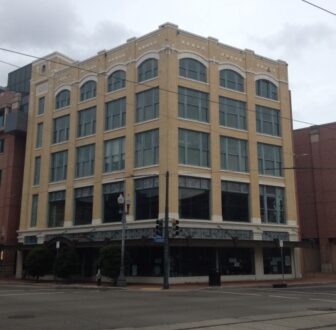Backers of the proposed Louisiana Civil Rights Museum want to know why they weren’t selected to buy the failed ArtWorks building even though they offered $2 million more than the chosen bid.
Board members of the Friends of the Civil Rights Museum also questioned why the winning bidder, the New Orleans Culinary and Hospitality Institute, was allowed to increase its initial bid while neither of the other bidders was.
“We’re going to legally look at what our options are,” Madlyn Bagneris, president of the Friends of the Civil Rights Museum, said Thursday. “We’re going to ask some questions.”
$6.2 millionCulinary institute’s winning bid$8.2 millionLouisiana Civil Rights Museum’s bid
Bagneris’ comments came a day after the Louisiana Artists Guild announced that it had chosen the culinary institute to buy ArtWorks for $6.2 million. Bagneris said the museum bid $8.2 million.
William Hines, chairman of the artists guild’s five-member board, said the organization wasn’t obliged to pick the highest bidder and the museum’s financing was tenuous.
“There’s nothing to litigate,” he said, annoyed at Bagneris’ suggestion of a lawsuit. “It was not a public building. … We sold it to who we felt like offered the best deal.”
The state and the city did, however, have to sign off on the deal because they had invested millions of dollars in the building.
Another museum board member, a retired New Orleans attorney named Ernest Jones, said the $8.2 million offered for the building would have come from “a private entity that has done public-private infrastructure deals before.” Jones said the entity is not in New Orleans. He said he could not identify it without its permission.

“We’re not looking for a fight,” added Bagneris. “But if we think there’s a problem, and we need to fight, we will.”
Bagneris is married to Michael Bagneris, who finished second in Saturday’s mayor’s race. She said he plays no role in the museum or its bid.
Backers of the museum said it would tell the story of Louisiana’s civil rights struggle through permanent and traveling exhibits.
A third entity, Launch Pad, a collaborative work space, bid $6.2 million to create an incubator for artists and others.
Hines, who is also managing partner of the Jones Walker law firm, told The Lens that he had said from the beginning that the board would base its decision on the bid price, ability to finance the deal and the “public purpose” planned for the structure.
The public purpose mandate stemmed from the government having poured about $18 million into constructing the $25 million ArtWorks complex, which consists of five adjoining buildings just off Lee Circle.
The institute is a consortium featuring Delgado Community College, the University of New Orleans, Tulane University and several prominent restaurateurs. Delgado will expand its culinary arts program and move it to ArtWorks. UNO will offer four-year culinary arts degrees. And Tulane will offer an executive chef master’s degree.
The culinary institute initially bid $5.1 million. But Hines said New Orleans Mayor Mitch Landrieu wouldn’t approve the deal unless the culinary institute matched Launch Pad’s $6.2 million offer. When the culinary board did so, the deal was done.
Hines said the board members didn’t ask Launch Pad or the civil rights museum for more money because they favored the culinary institute and now had a price accepted by the mayor and state officials.
“We sold it to who we felt like offered the best deal.”—William Hines, Louisiana Artists Guild
While the civil rights museum board offered more money, Hines said, “they did not have the ability to close with the cash in the next 60 days. They had a developer who would do a sale-leaseback. The developer would have to be paid back.
“This was ArtWorks all over again,” he said, meaning the board believed the museum would not be able to generate the money for its debt payments.
ArtWorks’ grand plans came crashing down in 2011 when the artists and art galleries could not generate enough income for ArtWorks to pay its debts.
Hines said Thursday that all of the $6.2 million from the sale would go to the city, which is owed $6.8 million for a loan extended to construct the ArtWorks complex. The city in turn borrowed the money from the U.S. Department of Housing and Urban Development. The city is slated to repay $630,000 to HUD this year.
Will the city take the $6.2 million to repay HUD and eliminate the debt, or use it for something else? Tyler Gamble, Landrieu’s spokesman, did not respond to The Lens’ question.
Hines said the state would get none of the $6.2 million even though the state is owed $2.25 million that it lent to ArtWorks. Separately, the state gave ArtWorks $8.45 million for construction costs that did not have to be repaid.
“The city cared about the money,” Hines said. “The state cared about getting the building back into use. The state had already invested money it could not recoup.”
